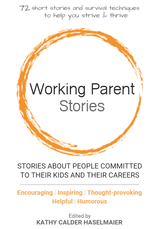|
The older I get, the more I'm able to understand both sides, or even multiple sides, of controversial issues. Winners and losers (real and/or perceived) often emerge as a result of the decisions we make related to these topics, and the positions people take are often related to their perspectives and past experiences.
Affirmative action is one of these controversial topics because it relates to ways in which we favor one group of people over another, and many view themselves as potential winners or losers based on the way we implement the policies. When not frustrating, it can be entertaining to step back and listen to those with the loudest voices. For example, I've known members of the military who are clear about their opposition to "affirmative action". Interestingly some of these people received their own military assignments during a time when the ultimate form of affirmative action was being implemented; qualified women and even some qualified men weren't even allowed to apply for the very positions these people feel they "earned". Some who are perceived as very successful in their careers today have spouses who deliberately limited their own career potential in order to support them. Certainly this is a form of affirmative action within a family. Sometimes the spouse who limited his or her own career potential was even making more money or appeared to have more career potential than the spouse they held back to support. It's most common for this form of affirmative action to manifest itself when one spouse shifts from full-time to part-time work, takes on a job that doesn't demand as many qualifications as they're capable of providing, or in extreme cases, one spouse drops out of the workforce for a significant period of time or even permanently. In the US, affirmative action is usually defined to be the practice or policy of favoring individuals belonging to groups that have experienced discrimination in the past, but I think it's more than that. Affirmative action, in my mind, is about asking ourselves what kind of future we want to experience and then taking deliberate steps to create that future. Families do this all the time. During vacations when our kids were young, we'd usually ask the kids to navigate from the car to the plane when we arrived at an airport. We didn't do this because our kids were better navigators than we were or because that process was the most efficient for our family. Instead we did it because we wanted our kids to be able to navigate for themselves in the future; we were trying to create the future we wanted to experience. We believed that the short-term investment would pay off in the future. Personal examples of how each of us implements affirmative action on a daily basis are endless. As far as I can tell, affirmative actions works. Maybe that's why some people don't like it. But when it's done right, we all win in the end.
0 Comments
Leave a Reply. |
The StoriesArchives
March 2022
Categories
All
|
Photos from barnimages.com, marcoverch, truewonder, donnierayjones, marcoverch, shixart1985, Gustavo Devito, edenpictures, nan palmero, quapan, The Pumpkin Theory, bark, opassande, Semtrio, Ivan Radic (CC BY 2.0), verchmarco (CC BY 2.0), Didriks, shawnzrossi, shixart1985 (CC BY 2.0), madprime, marksmorton, CT Arzneimittel GmbH, NwongPR, franchiseopportunitiesphotos, anotherlunch.com, jdlasica, wuestenigel, Frinthy, romanboed, Doris Tichelaar, quinn.anya, A_Peach, VisitLakeland, MEDION Pressestelle, Darren Wilkinson, bratislavskysamospravnykraj, Anthony Quintano, Danielle Scott, pockethifi, Bridgette Rehg, Martin Pettitt, PersonalCreations.com, wuestenigel, Thad Zajdowicz, archer10 (Dennis) 139M Views, Infomastern, beltz6, The National Guard, futurestreet, daveynin, OIST (Okinawa Institute of Science and Technology), Rinet IT, shixart1985, mikecogh, JeepersMedia, Ryan Polei | www.ryanpolei.com, Jake.Christopher., aleksandrajovovich, thepeachpeddler, wwward0, flossyflotsam, Got Credit, Senado Federal, Corvair Owner, lookcatalog, moodboardphotography, dejankrsmanovic, Carine fel, ElleFlorio, {Guerrilla Futures | Jason Tester}, greg westfall., Arlington County, mariaronnaluna, quinn.anya, wuestenigel, Tayloright, insatiablemunch, MrJamesBaker, Scorius, Alan Light, Monkey Mash Button, www.audio-luci-store.it, wohlford, Vivian Chen [陳培雯], okchomeseller, BoldContent, Ivan Radic, verchmarco, donnierayjones, Czar Hey, US Department of Education, Andrew Milligan Sumo, Michel Curi, anotherlunch.com, ProFlowers.com, Cultural viewpoints from around the world, alubavin, yourbestdigs, Rod Waddington, Tayloright, Wonder woman0731, yourbestdigs, donald judge, Thomas Leth-Olsen, Infinity Studio, shixart1985, wuestenigel, francesbean, Roger Blackwell, MrJamesBaker, Luca Nebuloni, MFer Photography, erinw519, boellstiftung, North Carolina National Guard, A m o r e Caterina, MrJamesBaker, bellaellaboutique, Free For Commercial Use (FFC), Prayitno / Thank you for (12 millions +) view, wuestenigel, Matt From London, MadFishDigital, Kompentenzzentrum Frau und Beruf, mikecogh, CreditDebitPro, marciadotcom, Mr.Sai, _steffen



 RSS Feed
RSS Feed